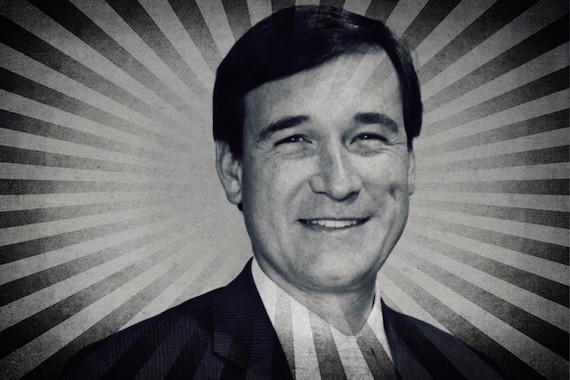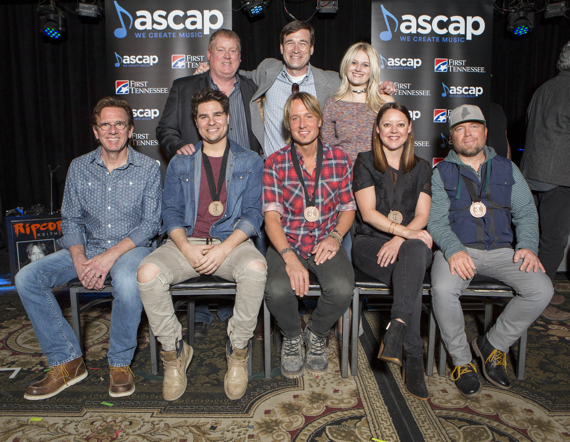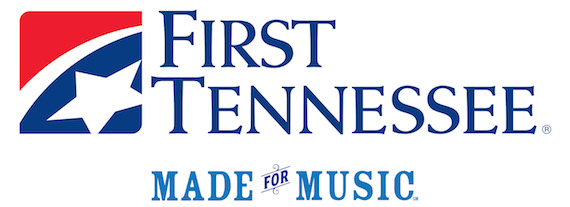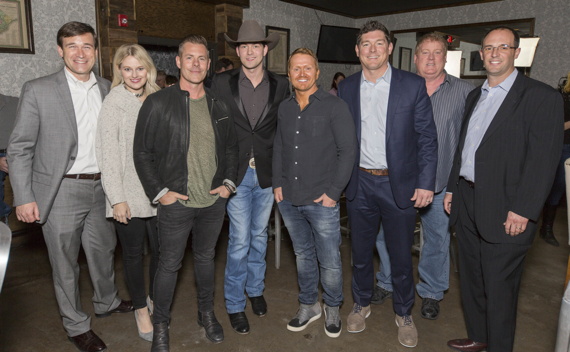

First Tennessee’s Andrew Kintz
One year ago First Tennessee launched a music business banking group, under the direction of former SunTrust banker Andrew Kintz. Starting from scratch has been an enjoyable challenge for Kintz and his team. He recently spoke to MusicRow about building a clientele, Nashville’s collaborative environment and why the music business is still a growth industry.
What was the bank’s mission in building this practice?
The music industry is a growth industry, not only locally, but across the country. Part of the bank’s overall corporate strategy is to look at more national businesses, and also specialty businesses, where there is growth. So, about the same time, they also started a new sponsor-backed healthcare group and had a team very similar to mine join the firm to work with those kinds of companies.
I think it is also because Tennessee is a place of music. Think about bluegrass in East Tennessee, country and Christian here in Middle Tennessee, and blues and rock ‘n’ roll in West Tennessee. Of all the banks headquartered in this state, we have the largest market share of the overall state, so the executives were thinking, “Wait a second. We’re not deep in the music industry?”
Was it appealing for you that First Tennessee didn’t already have an established music division?
I was kind of a free agent last summer, so I started talking to banks, business management firms, and publishers, just trying to figure out my next ten years.
What I wanted at that time was to build something completely from scratch, because I don’t have the risk appetite to be a real entrepreneur. I wanted there to be a blank page. I wanted to have zero clients. I wanted there to be no credit policy internally.
First Tennessee didn’t have a music division, but they wanted to make a large investment, so we entered the industry. Day one, all we had was expenses and no revenue. And to say, “Okay, let’s take on that challenge. And let’s build the team, and let’s find our own space.” It’s been wonderful. It’s been really hard and really fun.
What are you building today that’s different from your previous banking experiences?
When you’re starting with zero clients, you have to think about the business in a really strategic way. And you have the time and space to think.
Each one of the music banks, who are all my friends, and people I care about and respect, all kind of have a niche. So it’s figuring out, “What’s our identity? Who do we want to serve? Where is our place in the industry?”
Companies make up about 75 percent of our business and individuals about 25 percent. I think that business mix is going to remain. Most of our current business is commercial-forward, meaning “company first, individual to follow after that.” For companies in the music industry we loan money or do treasury management. Our approach has been to become the company’s bank. And then the second step has been doing something for the owner, or doing something for one of the big writers of that publishing firm that became our client.

Andrew Kintz celebrates at ASCAP party to honor Keith Urban’s No. 1, “Blue Ain’t Your Color,” written by Clint Lagerberg, Hillary Lindsey and Steven Lee Olsen, on Friday, March 3, 2017 at Nashville’s Basement East.
Many people believe the music industry is struggling. But you see the glass as half full. Why is it a growth industry?
There are segments of the industry that are a challenge, but as a whole, we see it as a growth industry. Arguably, this time last year, we were in the very first year in a long time that all three main sections of the music industry were growing: performance royalties, touring, and recorded music.
The PROs are collecting and distributing more dollars every year.
Live music has crested the $10 billion mark in the United States. Ticket sales continue to be strong, and if you look at the Pollstar numbers that came out June 30, it was an 11 percent growth from the prior year. Sponsorship business is healthy. Advertising is healthy.
And then, finally, recorded music is coming back. Meaning that it went from $15 billion in the year 2000, down to $7 billion in 2015, but in 2016, it was back up to $7.7 billion, because of streaming. So we’ve increased 10 percent in recorded music.
With so many banks vying for entertainment business here in Nashville, what is the environment like?
It’s extremely friendly. It’s unlike banking in general where banks are going head-to-head. I was at Regions Bank recently being hosted by Brad Peterson at a great information session led by John Barker from ClearBox. I use that as an example, because it’s that way with the competitors such as Pinnacle Bank, Regions Bank, SunTrust Bank, City National Bank and Franklin Synergy. And I have worked with most of them, literally, when we were all at the same bank. Over time, those relationships have been strong.
I think that collaboration is unique to Nashville. It’s not like this in the other entertainment hubs in the country. I know my competitors’ strengths, and if there is a product or service that another bank may have that I don’t, I’ll call the other banker about it. I honestly believe that all the banks can win and grow. I bet if you talk to each leader they would honestly say their business is growing.
Now that you’ve got a year behind you, what are some of the things that you learned by starting with a clean slate?
I’ve learned to be very inclusive of my team, which is made up of Bryan Bolton, Mark Ford, and Aaron Hester. It’s important for the four of us to make decisions together. For example, we’ve created this cool, little sub-brand: ‘First Tennessee Bank—Made for Music.’
I’ve also learned about the importance of overlap in roles and duties. We are all almost 20-year bankers so we basically wear all hats. I’m doing portfolio manager work, relationship manager work, executive work, and assistant work. And I like it—it’s bootstrapping. It’s a good thing for someone to need to do everything, and not consider themselves in a specific role. And, I want to make that continue even as we grow and as I hire more people over the next six months.

For clients seeking music banking services, what should they look for in a bank?
If they’re meeting with any entertainment bank, I think it’s very important for them to understand the overall corporation’s investment in the business. And thankfully, all of the main banks have shown great commitment to the business. If you’re a significant client, I would want to meet the leader of the music industry group and the leader of the bank itself, to really understand how invested the bank is in the business.
I think another piece of it is understanding the breadth of your bank. In other words, anybody can do a commercial loan to acquire a piece of real estate. But there are other things to try to understand. I would want to have one bank that could essentially serve all my needs. If I was a publisher and was expanding, I would want to understand how they underwrite a catalog purchase. Those parameters can vary widely— amortization, term, rate, pre-payment penalty, the value of the catalog. And I’d ask, at what size loan do they require evaluation? Because there are transaction costs. There would be a lot of questions depending on what segment of the industry I was in.
The hard economics of being a songwriter has created ongoing dialogue in the news. What are your thoughts about how we as an industry address this?
There are a lot of reasons for hope, for professional songwriters, for the PROs who represent them, and for the publishers who sign them. The pie really is getting bigger, but the songwriter piece needs to be getting bigger commensurate with the way the overall industry is growing. There are other things that are kind of replacing that income in the industry and those funds need to be getting to writers.
With the NMPA, AIMP and NSAI and all of these wonderful organizations fighting like crazy for songwriters, I have reason to hope. I think that having two PROs under consent decrees is a really difficult thing for songwriters. But I see hope that those will be changed.
There are less songwriters in this city than there were 20 years ago. And that’s to the detriment of us all. The magic thing for some up-and-coming songwriters is that money is not the end goal. Because this is art.

Andrew Kintz joins ASCAP to celebrate the No. 1 status of Warner Bros. recording artist William Michael Morgan’s debut single, “I Met A Girl” at Nashville bar South on Monday, Jan. 30, 2017.
What advice would you give someone starting out in this business, who wanted to follow a similar career path similar?
I would say to enjoy the people and friendships first. You have to learn about what makes someone tick, what makes their business work, what they’re passionate about. The business and clients will follow. Once you get the music industry bug, you can’t get rid of it. When I moved to Nashville to be in the music industry, I completely fell in love with the people in the industry and not the business of it.
If you’re 22 years old, then go and join all of the different kind of young societies. YEP, or the Hall of Fame’s young society. You will meet all these other people who you’re going to come up in the industry with.
One last question. No one has ever accused Andrew Kintz of not having passion. After having a substantial number of years in this industry, how do you keep that passion burning so brightly?
I love listening to new music and hearing about how it was created, so that’s a huge part of it. It’s also the attitude of seeing this all as a gift. I pinch myself because I’m always getting to go hear music, be part of music, have some small part to play in the creation and the performance of music. So, to me, the passion is because there’s always something new.
That’s the secret sauce—stay excited about music.

Category: Exclusive, Featured, Financial/Legal
About the Author
Sherod Robertson is President and Owner of MusicRow Enterprises. He oversees all operations and develops strategic initiatives for MusicRow magazine, RowFax, and MusicRow's CountryBreakout chart. Robertson previously served as Director of Finance of Arista Records after beginning his career as Vice President of Finance and CFO at Reunion Records.View Author Profile


